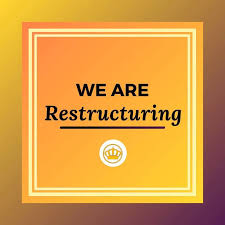“We Regret to Inform You…”: How to Get Hired Soon After a Sudden Layoff
When Eunice opened her inbox on a quiet Tuesday morning, she wasn’t expecting her world to shift. A long-serving project manager with a top international NGO in Nairobi, Eunice had just wrapped up a successful grant cycle and was gearing up for a new phase of programming. But the email’s subject line—“Important Update on Organizational Restructuring”—stopped her cold.
Within minutes, she was in a virtual meeting where she and several colleagues were told their roles were being dissolved due to global restructuring. No warning. No transition period. Just a promise of a severance package and a generic reference letter.
“I felt like I was falling. Everything I had worked for, all the nights I stayed up writing reports, mentoring young staff, building relationships with donors—it felt like it evaporated in one email,” she says. Eunice’s story is not unique, especially in today’s volatile job market. Layoffs—particularly sudden ones—can feel like a punch to the gut. But as Eunice’s journey shows, it’s possible not just to survive a layoff, but to grow through it.

Here’s how to pick yourself up, refocus, and get hired again—with confidence and clarity.
1. Grieve the Loss, But Don’t Carry It Alone
A layoff is a form of loss. It’s okay—and healthy—to feel sadness, anger, or anxiety.
“I gave myself a week,” Eunice says. “No job applications. No productivity pressure. Just time to cry, journal, pray, and process.”
Talk to someone. Whether it’s a friend, therapist, or former colleague, speaking out loud helps you release the emotional weight and regain perspective.
2. Separate Your Identity From the Job Title
Many professionals, especially those in senior or mission-driven roles, tie their self-worth to their positions. A layoff can shake that foundation.
But remember: your value isn’t tied to your title, employer, or LinkedIn status. It’s rooted in your skills, character, and contributions.
Eunice shares, “I had to remind myself—I am still the same capable, smart, driven person, even without that job title.”
3. Get Clear on Your Strengths—and Your Story
Before jumping back into job boards, pause and reflect.
- What are your core strengths?
- What impact did you have in your previous roles?
- What kind of work energizes you now?
Update your CV, refresh your LinkedIn profile, and write a strong “career summary” that tells your story—not just your duties.
Frame your layoff professionally:
“My position was impacted by global restructuring. While unexpected, it gave me time to reflect on my long-term career goals and refocus on opportunities where I can make a meaningful impact.”
4. Reconnect With Your Network—Genuinely
The majority of new roles come through people, not job ads.
- Send check-in messages to former colleagues, managers, or clients.
- Join webinars, local industry events, or professional WhatsApp groups.
- Let people know (privately or publicly) that you’re exploring new opportunities.
“I didn’t post on LinkedIn immediately,” Eunice says. “But I reached out to three people I trusted. One of them referred me to a short-term consulting opportunity that helped me regain momentum.”
5. Stay Visible While You Search
Being between jobs doesn’t mean being invisible. Post thoughtful content on LinkedIn. Share a lesson learned from your past role. Comment on industry trends. Offer insights in areas you’re passionate about.
Visibility builds credibility. And credibility leads to conversations—and opportunities.
6. Consider Short-Term, Project-Based Work
While job searching, explore:
- Freelance consulting
- Donor-funded project roles
- Remote contract work
- Volunteering on advisory boards
These can:
- Keep your skills sharp
- Expand your network
- Lead to full-time opportunities
“A short-term role with a local development agency opened doors to a regional position I hadn’t even considered before,” Eunice says.
7. Prepare for the “Layoff Question” in Interviews
Hiring managers will likely ask why you left your last role. Practice a confident, concise response that focuses on the future.
Sample answer:
“My role was affected by a global restructuring. It gave me the opportunity to step back and identify where I can add the most value. I’m now looking for a role where I can contribute to strategy and program impact across the region.”
Don’t sound apologetic. Be calm, factual, and forward-looking.
8. Take Care of Your Mental and Financial Health
Job searching can feel like a full-time job—without the salary. Protect your energy:
- Set daily limits for job applications.
- Schedule breaks, exercise, and time offline.
- Track your expenses and explore benefits (e.g., NHIF, NSSF, insurance options).
And above all, celebrate small wins—every application sent, every call scheduled, every connection made.
9. Reimagine What’s Possible
Sometimes a layoff leads you back to a similar role. Sometimes, it pushes you toward a career shift you didn’t think was possible.
Eunice, for example, eventually landed a role as a Regional Strategy Advisor for a multilateral organization, expanding her influence across East Africa.
“I never would have gone for this role if I hadn’t been forced to pause. Getting laid off helped me dream bigger.”
Final Thought: A Layoff is a Chapter, Not the End of Your Story
Layoffs hurt. They disrupt plans, shake our identity, and test our resilience. But they also create space—for reflection, reinvention, and growth.
Like Eunice, you can emerge stronger, wiser, and more aligned with your purpose.
So if you’ve just heard the words “We regret to inform you…”—know that this moment, as painful as it is, can lead to something better.
Your next opportunity is out there. And you are more ready than you think.
Need help updating your CV or navigating the job search?
Let’s work together to craft a career story that gets you noticed—and hired.
📩 Want early access to new tools? Sign up for updates: https://forms.gle/uf2SrkFSpMgKLTD9A
Let’s build your edge.
#KizunaEdgeTalentHub #CareerGrowthAfrica #LinkedInTips #JobSearchAfrica

